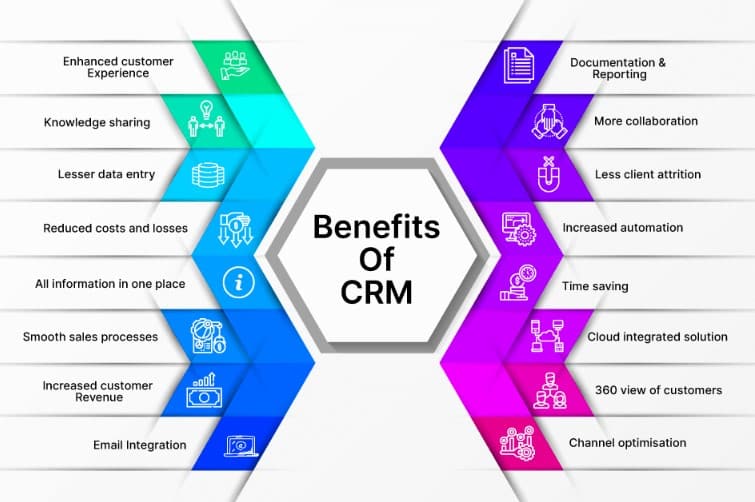The Benefits of Integrating CRM with Your Sales Process
The Benefits of Integrating CRM with Your Sales Process – If you’re looking for ways to improve your sales process, integrating a CRM (Customer Relationship Management) system can have a significant impact on your success. CRM software allows businesses to manage their customer data, track sales interactions, and automate various sales processes. In this article, we’ll explore the benefits of integrating CRM with your sales process.
Table of Contents
- What is CRM?
- Why integrate CRM with your sales process?
- Streamline your sales process
- Improve lead management
- Enhance customer experience
- Accurate sales forecasting
- Better team collaboration
- Automate tasks and save time
- Increase revenue
- Analyze sales data and identify trends
- Improve customer communication
- Better customer retention
- Easy access to customer information
- Security of customer data
- Conclusion
- FAQs
What is CRM?
CRM software is designed to help businesses manage their customer interactions and data. It allows businesses to store customer data in a centralized location, making it easy for teams to access and analyze. CRM software also provides tools for automating various sales processes, such as lead scoring, email marketing, and customer segmentation.
Why integrate CRM with your sales process?
Integrating CRM with your sales process can provide numerous benefits for your business. Here are some of the top benefits of using CRM software in your sales process:
1. Streamline your sales process
CRM software can help streamline your sales process by automating repetitive tasks and providing a clear path for your sales team to follow. It can also provide insights into which sales activities are working and which ones need improvement.
2. Improve lead management
CRM software allows businesses to track and manage leads effectively. It can help your sales team prioritize leads and ensure that they are following up with potential customers in a timely manner.
3. Enhance customer experience
By using CRM software, businesses can provide a more personalized experience for their customers. CRM software allows businesses to store customer data and history, making it easier to understand their needs and preferences.
4. Accurate sales forecasting
CRM software provides businesses with insights into their sales pipeline and helps to forecast future sales. This can help businesses make informed decisions about resource allocation and budgeting.
5. Better team collaboration
CRM software allows sales teams to work together more efficiently. Teams can share information and collaborate on deals, ensuring that everyone is on the same page.
6. Automate tasks and save time
CRM software can automate various tasks, such as sending follow-up emails and scheduling appointments. This can save your sales team time and allow them to focus on more important tasks, such as building relationships with customers.
7. Increase revenue
By using CRM software to manage your sales process, businesses can increase revenue by closing more deals and improving customer satisfaction.
8. Analyze sales data and identify trends
CRM software provides businesses with insights into their sales data. By analyzing this data, businesses can identify trends and make informed decisions about their sales strategy.
9. Improve customer communication
CRM software allows businesses to communicate with their customers more effectively. It provides tools for email marketing, social media management, and other communication channels.
10. Better customer retention
CRM software can help businesses retain customers by providing insights into their needs and preferences. This allows businesses to tailor their products and services to better meet their customers’ needs.
11. Easy access to customer information
By using CRM software, businesses can store all of their customer information in a centralized location. This makes it easy for teams to access customer data and history, improving their ability to provide personalized service.
12. Security of customer data
CRM software provides businesses with a secure way to store customer data. This ensures that customer information is protected from unauthorized access and reduces the risk of data breaches.
Conclusion
Integrating CRM with your sales process can have a significant impact on your business. It can help you streamline your sales process, improve lead management, enhance customer experience, provide accurate sales forecasting, enable better team collaboration, automate tasks, increase revenue, analyze sales data, improve customer communication, ensure better customer retention, and provide a secure way to store customer data.
FAQs
What is CRM software?
How can CRM software help my sales process?
Can CRM software be integrated with other business applications?
What are some examples of CRM software?
Is CRM software easy to use?
